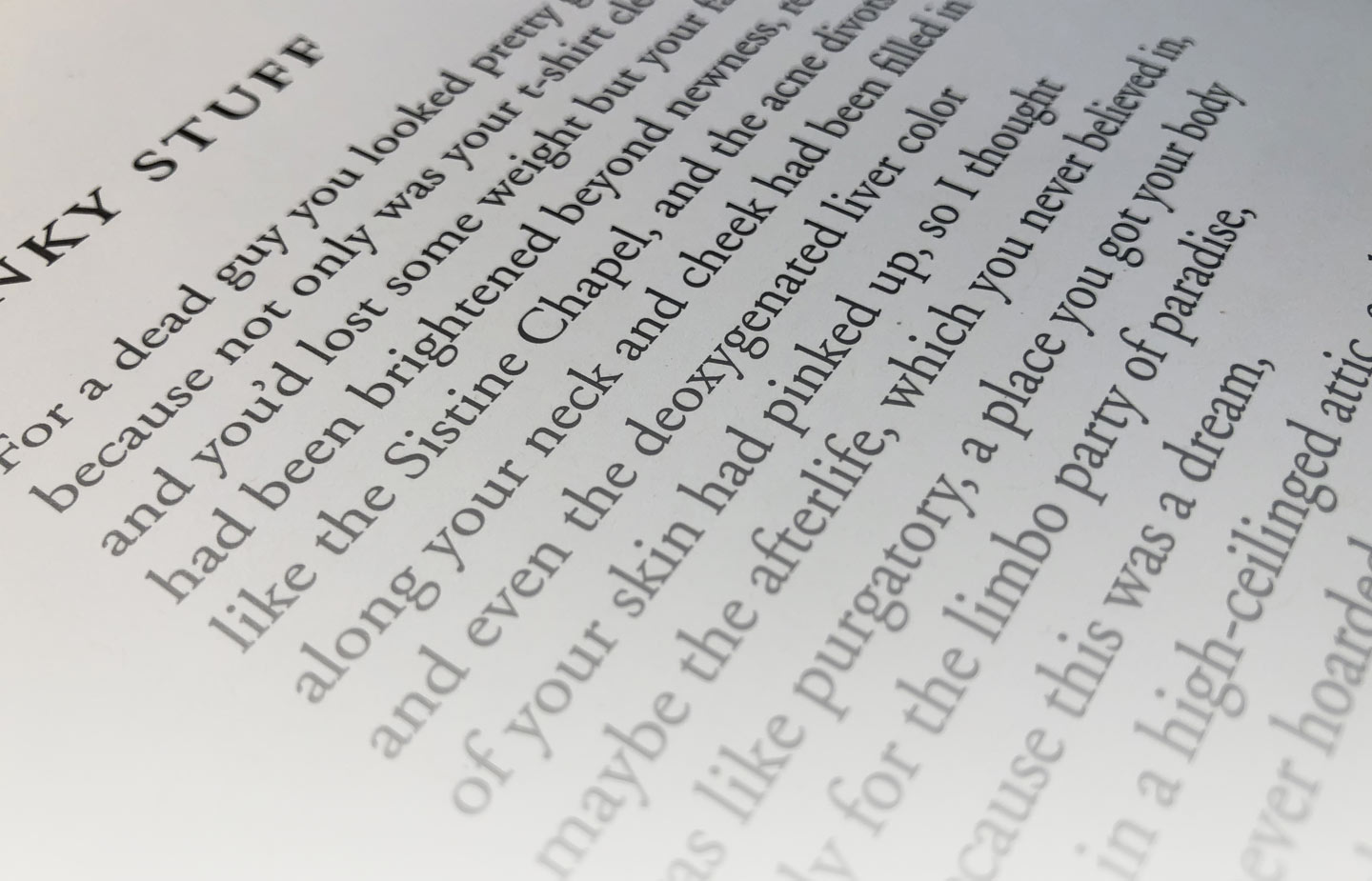The Bishop
Michael Collier ’76 is the author of seven collections of poetry, including his latest, My Bishop and Other Poems, which includes the following three selections: “Funky Stuff,” “Boom Boom,” and “Anecdote of the Piano in the Woods.”
Funky Stuff
For a dead guy you looked pretty good,
because not only was your t-shirt clean
and you’d lost some weight but your faded tattoo
had been brightened beyond newness, restored
like the Sistine Chapel, and the acne divots
along your neck and cheek had been filled in
and even the deoxygenated liver color
of your skin had pinked up, so I thought
maybe the afterlife, which you never believed in,
was like purgatory, a place you got your body
ready for the limbo party of paradise,
but because this was a dream,
we were in a high-ceilinged attic, and you
who had never hoarded anything had filled
the space with piles of clothes, magazines
and newspapers stacked like pillars,
columns of books still in their shrink-wrap.
Here and there were clumps of rubber gloves—
black, orange, lavender, and yellow—for what
you called “the funky stuff.” I asked, “What’s
the funky stuff?” And you said, “I don’t know,
but no one wants to touch it.”
Boom Boom
I leave my backyard and enter the alley in search of my poetry. I get lost a
few houses down near the Eldridge’s because all the fences and trash cans are
identical. I am alone filling a shirt pocket with the bees David Hills eviscerates
by pulling out their stingers and that he has lined up on a flap torn from a
cardboard box that’s pinned to the ground with four small stones. In a toolbox
I have a small hammer and screwdrivers for taking things apart. Above me is
the sky that is always blue. (This means at night the stars are what I see but
can’t count.) The alley is dirt. My shoes scuff its uneven surface. Suddenly a
door opens, a dog barks, it’s Boom Boom, a Chihuahua, not even a dog in my
mind. It rushes its side of the fence and is so much louder and fiercer than it
needs to be. After a while it stops. Now it sounds like a tambourine because of
a collar with tiny bells. Passionflowers grow in a thick vine over Boom Boom’s
fence. I have been told the leaves of these flowers are the lances that pierced
Jesus’s chest and broke his legs. Boom Boom is whimpering, lying down near a
place in the fence through which I squeeze my hand to touch his nose. “Boom
Boom,” I say, very quietly, “I love you. You are the only one who understands
me.” Afterwards, I feel very small and very large, restrained and freed, and
certain there is a purpose to life beyond the one I’ve been given.
Anecdote of the Piano in the Woods
I came upon a piano in the woods.
Its silver casters balanced on three stones.
A harp lay inside the lean-to of its top.
No bench, except the air, which meant
its silence roused the trees.
The leaves were the music’s million,
million ears. The limbs, a hundred
thousand raised batons. Pollen was
yellow snow on its lacquered skin.
Like a swinging bridge above a flooded
creek the keys were rippling dominoes,
and the water running beneath,
molded to the shape of stones below,
was an always moving, never changing
melody, a surface score whose swells
and hollows, whose shadows, read
by sight, sounded a chorus of a single note,
that sounded like a piano in the woods.
